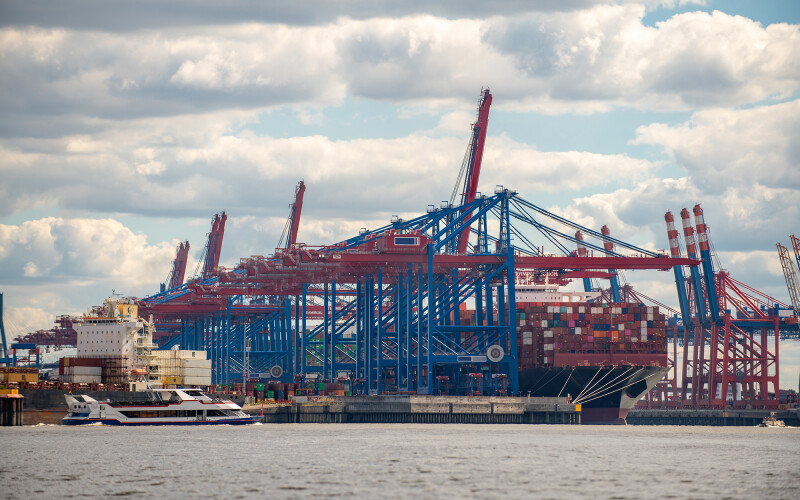The union representing 45,000 longshoremen on the U.S. East and Gulf Coasts and their employers on Wednesday said they reached a tentative agreement to prevent additional port strikes, which had posed a risk to supply chains and threatened harm to the U.S. economy.
In a joint statement, the International Longshoremen's Association (ILA) and the United States Maritime Alliance (USMX) described the deal as a “win-win.” The tentative deal on a new six-year contract addresses the contentious issue of automation, which had been one of the main sticking points in the negotiations.
“This agreement protects current ILA jobs and establishes a framework for implementing technologies that will create more jobs while modernizing East and Gulf coast ports – making them safer and more efficient, and creating the capacity they need to keep our supply chains strong,” the groups said.
Terms of the deal were not disclosed. “The two sides agreed to continue to operate under the current contract until the union can meet with its full Wage Scale Committee and schedule a ratification vote, and USMX members can ratify the terms of the final contract,” the groups said.
Following the expiration of the previous contract on September 30, 2024, a three-day strike by the ILA in October led to a sharp increase in shipping rates and significant cargo delays at the 36 ports impacted. Longshoremen resumed work after employers agreed to a 61.5% wage increase over the next six years, though terms on automation were not finalized.
Negotiations for a new contract were extended until January 15 to finalize an agreement on automation technology, which reduces the need for human labor in cargo processing and handling. This technology, already used to some extent at all major U.S. ports, enhances the efficiency of moving containers in and out of terminals, according to the USMX. However, the ILA views automation as a threat to its workforce.
President-elect Donald Trump has voiced his support of the ILA’s position. “I’ve studied automation, and know just about everything there is to know about it. The amount of money saved is nowhere near the distress, hurt, and harm it causes for American Workers, in this case, our Longshoremen,” said Trump in a post on his social media platform Truth Social, on Dec. 12.
“Foreign companies have made a fortune in the U.S. by giving them access to our markets. They shouldn’t be looking for every last penny knowing how many families are hurt. They’ve got record profits, and I’d rather these foreign companies spend it on the great men and women on our docks, than machinery, which is expensive, and which will constantly have to be replaced. In the end, there’s no gain for them, and I hope that they will understand how important an issue this is for me. For the great privilege of accessing our markets, these foreign companies should hire our incredible American Workers, instead of laying them off, and sending those profits back to foreign countries. It is time to put AMERICA FIRST!”
On Wednesday, ILA President Harold J. Daggett credited Trump for helping the union to reach a deal with the USMX. “President Trump clearly demonstrated his unwavering support for our ILA union and longshore workers with his statement ‘heard round the world’ backing our position to protect American longshore jobs against the ravages of automated terminals,” said Daggett. “President Trump’s bold stance helped prevent a second coast-wide strike at ports from Maine to Texas that would have occurred on January 15, 2025, if a tentative agreement was not reached.”
President Joe Biden on Wednesday praised the two sides for reaching a deal. “Collective bargaining plays an important role when it comes to building a strong economy from the middle out and the bottom up. Today’s tentative agreement between the International Longshoremen’s Association and the United States Maritime Alliance shows that labor and management can come together to benefit workers and their employers.
“I applaud the dockworkers’ union for delivering a strong contract. Their members kept our ports open during the pandemic, as we worked together to unsnarl global supply chains. Thank you to the carriers and port operators who play an essential role in our nation’s economy.”
The National Retail Federation said the agreement should boost certainty for ocean shippers and the supply chain. “Providing certainty with a new contract and avoiding further disruptions is paramount to ensure retail goods arrive in a timely manner for consumers. The agreement will also pave the way for much-needed modernization efforts, which are essential for future growth at these ports and the overall resiliency of our nation’s supply chain,” said Jonathan Gold, NRF's vice president of supply chain and customs policy.




